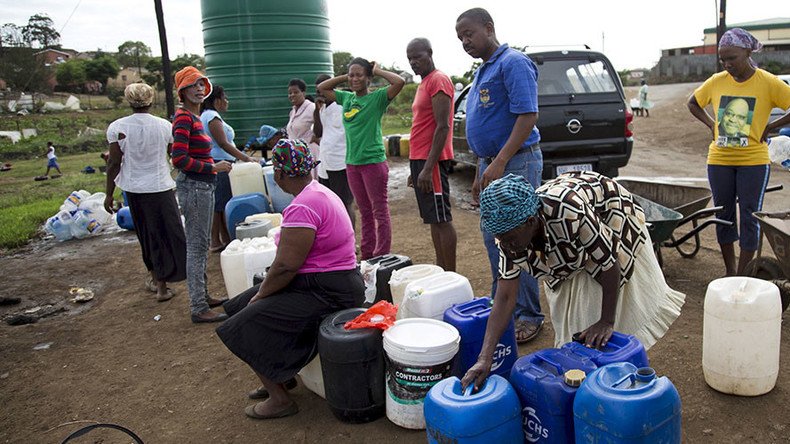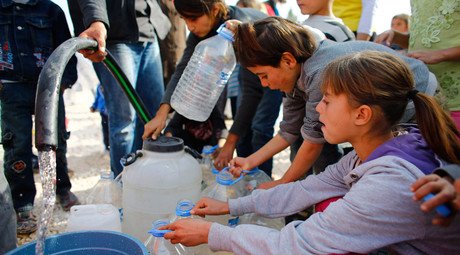Water shortages will deliver ‘severe hit’ to world by 2050

Global water shortages are taking their toll. The World Bank has issued a stark warning that the Middle East, Africa and Central Asia will receive a particularly “severe hit” by 2050, and global mismanagement needs to be addressed urgently.
The report issued Tuesday states that by mid-century, a combination of factors, including climate change and urban and population growth, will put a strain on water resources in areas where there is plenty – and hit really hard the ones where supply is already very scarce.
Adding to these factors will be increasing demand and rising incomes, together producing an erratic supply with unforeseeable dynamics.
This is in a world where 1.6 billion people already suffer from serious water scarcity. And that is by conservative calculations – other studies have judged the figure to be as high as 4 billion people, depending on how scarcity is defined. According to the World Bank, combined global demand will increase by 100 percent in the next 20 years.
The author of the report warns that this will lead to new patterns of migration and an increase in civil conflict. “Where economic growth is impacted by rain fall, episodes of droughts and floods have generated waves of migration and statistical spikes in violence within countries. In a globalized and connected world, such problems are impossible to quarantine. And where large inequities prevail, people move from zones of poverty to regions of prosperity which can lead to increased social tensions,” the report’s author and lead environmental economist Richard Damania writes.
And unless something is done soon, the poorer, dryer regions of the world will see their GDP plummet by as much as 6 percent by 2050, something the report’s author and lead environmental economist Richard Damania calls “a severe hit.”
The key to treating our sick planet lies in taking better policy decisions. Damania believes some economies could grow by as much as six percent if better management is implemented. “Water is the common currency which links nearly every SDG (Sustainable Development Goal), and it will be a critical determinant of success,” he writes.
Neither positive growth in jobs and industries, nor food security and health, could be sustained without proper water management, which will come to link all of them increasingly.
According to the report, the next 30 years will see just the food sector’s demand increase 40-50 percent, while municipal and industrial demand is likely to rise by 50-70 percent. Worse still, our energy sector will consume a staggering 85 percent more of the resource than it does today.
As a result, the environment stands to lose even more.
READ MORE: Nightmarish El Niño leaves 1mn African children subject to 'acute malnutrition'
We have been seeing evidence of what a water shortage could do in war-torn zones all the time, and with increasing frequency. Conflict in Africa and the Middle East is proof that when a single source of water is hit accidentally or deliberately, an entire city could suffer. We don’t have to look further than Syria, Iraq, Palestine and Libya for a wealth of examples.
Climate change and bad management have also previously been blamed for the depletion of the world’s major aquifers, which is taking place at an increasing rate. Rising sea levels serve as another issue requiring urgent attention. Rising saltwater contaminates coastal aquifers, making water there less usable, such as the case in Florida.
READ MORE: Water-energy crisis threatens earth’s future - UN
And the world has found itself in the midst of record droughts and extreme heat waves – from India to California, while a record heat wave less than a week ago killed 300 people in South Asia. The solution, authorities said, was to drink lots and lots of water.














